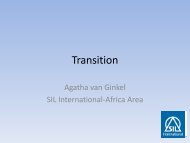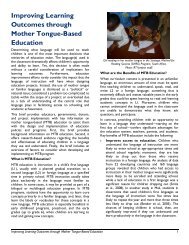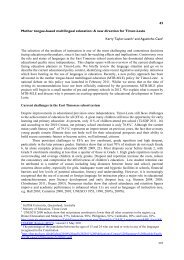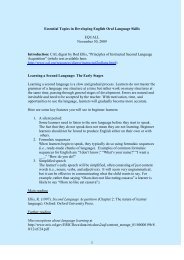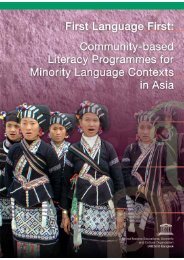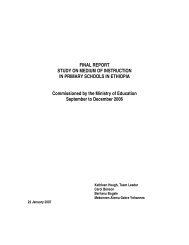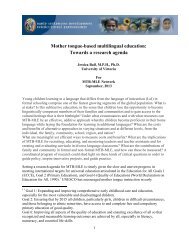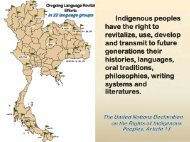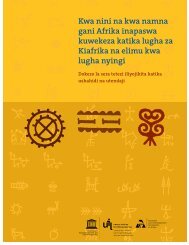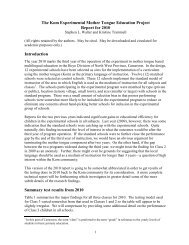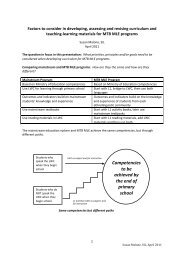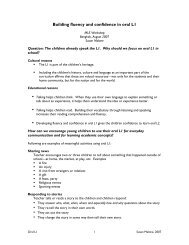Part II.pdf - MTB-MLE Network
Part II.pdf - MTB-MLE Network
Part II.pdf - MTB-MLE Network
Create successful ePaper yourself
Turn your PDF publications into a flip-book with our unique Google optimized e-Paper software.
• Indigenous learning systems are disappearing, and consensus building in local<br />
decision-making is declining<br />
• Indigenous peoples are seldom/never consulted about the design and implementation<br />
of education and development programmes<br />
Economic Situation<br />
• Development is often seen by IPs as the development of infrastructure like roads, bridges<br />
and buildings<br />
• Many IPs experience extreme deprivation; some IPs eat only one meal a day, often sweet<br />
potato<br />
• IPs have a variety of products for sale in the market, but they are usually short-changed<br />
by middlemen<br />
• IPs need the help of people or groups who are genuinely sincere in working for their<br />
welfare and development<br />
• IPs need education and training in sustainable management of their ancestral domain<br />
Political Situation<br />
• Indigenous territories are caught in the crossfire of armed conflicts between Armed Forces<br />
of the Philippines (AFP) vs. New Peoples Army (NPA), AFP vs. Moro Islamic Liberation<br />
Front (MILF) and other leftist/extremist groups<br />
• There is a continuing exploitation of IPs by both GOs and NGOs; some IP leaders are<br />
manipulated by politicians for their own selfish interest<br />
• Traditional leaders are able to resolve conflicts using customary laws<br />
Strategies and Recommendations<br />
Based on the national scenario and IP view, the following recommendations were given by the IPs<br />
themselves:<br />
• IPs should participate actively and substantially in all decision-making activities that<br />
affect them.<br />
• NFE programmes should respond and be relevant to IPs’ needs and aspirations. The<br />
competencies should, therefore, be drawn from the wealth of tribal heritage.<br />
• Programmes should respect and integrate traditional knowledge and indigenous learning<br />
systems.<br />
• Activities should preserve local values, beliefs, culture and reinforcement of IP community,<br />
unity and solidarity.<br />
• Initiatives should use local dialect/lingua franca.<br />
• Programme design should provide incentives and capacity-building for teachers<br />
(IP teachers are preferred).<br />
• Programmes should integrate literacy skills with livelihood.<br />
184



